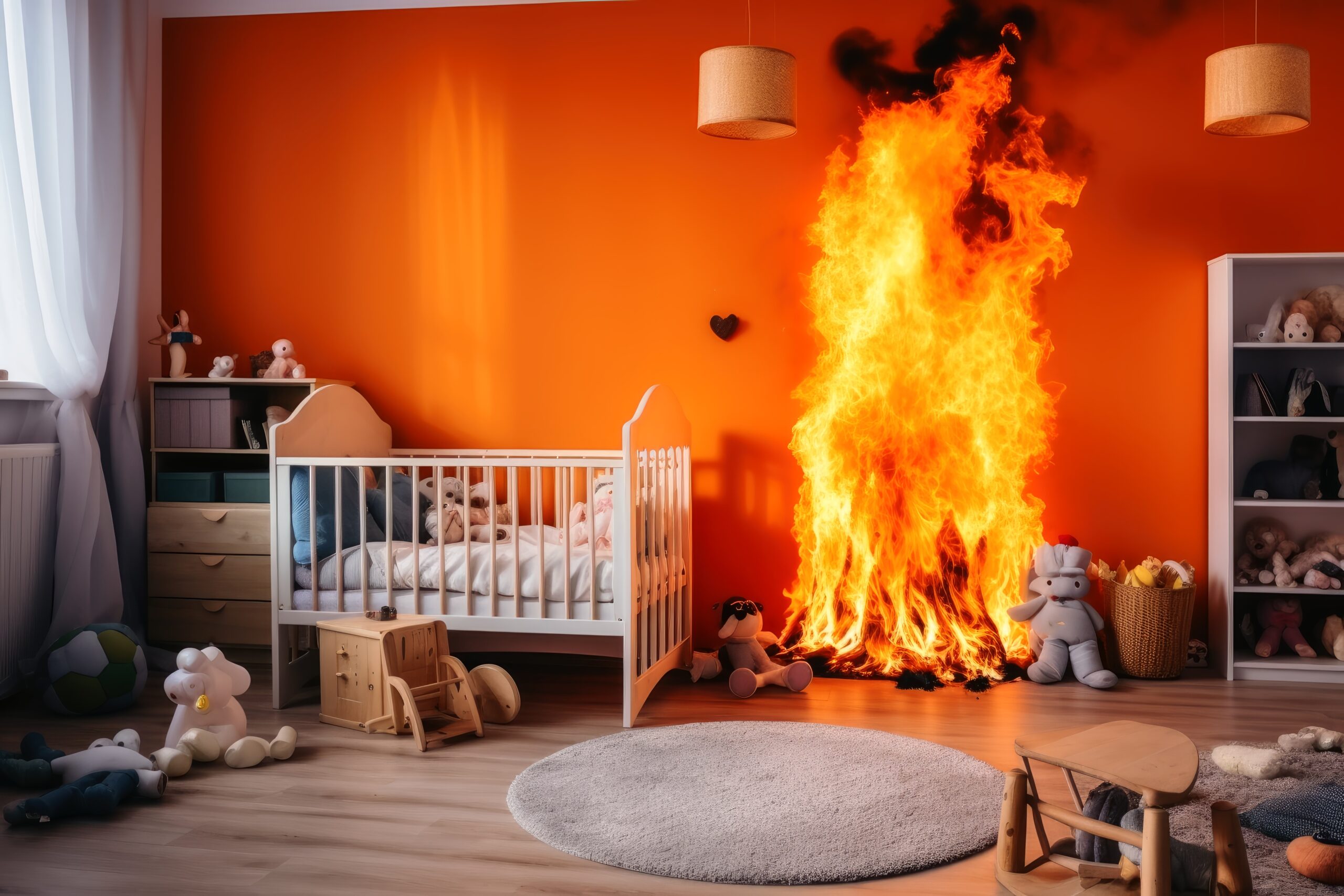What You Need to Know About Home Fire Risks from Lithium Batteries
Lithium-ion batteries have become an indispensable part of modern life, powering everything from our smartphones and laptops to our e-bikes and power tools. While these batteries offer convenience and portability, they also pose potential fire hazards if not handled properly. As the prevalence of lithium-ion batteries in our homes increases, it’s crucial to understand the associated risks and take steps to minimize them.
Top Home Fire Risks Due to Lithium Batteries
Overheating: Lithium-ion batteries are susceptible to overheating, which can lead to thermal runaway, a dangerous condition where the battery releases heat, causing a chain reaction that intensifies the heat and can result in fire or explosion. Overheating can be triggered by various factors, including:
- Excessive charging: Leaving batteries plugged in for extended periods or using incompatible chargers can lead to overheating.
- Physical damage: Dropping, crushing, or puncturing a battery can damage its internal structure, increasing the risk of overheating.
- Extreme temperatures: Exposing batteries to extreme heat or cold can degrade their performance and increase the likelihood of overheating.
Electrical faults: Short circuits, which occur when the positive and negative terminals of a battery come into contact, can cause a sudden surge of energy, leading to overheating and fire. Electrical faults can be caused by damaged wires, faulty chargers, or improper battery installation.
Manufacturing defects: While less common, manufacturing defects can also contribute to lithium-ion battery fires. Defects in the battery’s internal components can lead to overheating, short circuits, or other malfunctions that can trigger a fire.
Home Fire Statistics Due to Lithium Batteries
The increasing use of lithium-ion batteries in various consumer products is likely contributing to the rise in battery-related fires. This trend is evident in the following statistics:
- According to the U.S. Consumer Product Safety Commission (CPSC), there were over 25,000 incidents of fire or overheating involving lithium-ion batteries between 2017 and 2022. These incidents resulted in an estimated 13 deaths and 141 injuries.
- A study by the National Fire Protection Association (NFPA) found that the number of fires involving e-bikes and e-scooters increased by 131% between 2019 and 2021. The study also noted that these fires often involved lithium-ion batteries.
- In New York City, the fire department has reported a significant increase in fires caused by lithium-ion batteries. In 2022, there were over 200 e-scooter and e-bike fires in the city, resulting in six fatalities. These fires are often caused by faulty batteries or chargers, or by improper storage or handling of batteries.
Mitigating Home Fire Risks from Lithium Batteries
- Proper use and storage: Always follow the manufacturer’s instructions for charging and using lithium-ion batteries. Use only compatible chargers and avoid charging batteries in direct sunlight or near heat sources. Store batteries in a cool, dry place and keep them away from flammable materials.
- Regular inspection: Inspect batteries regularly for signs of damage, such as dents, bulges, or cracks. If you notice any damage, discontinue use and dispose of the battery properly.
- Use certified batteries: Purchase batteries from reputable manufacturers and avoid using counterfeit or knock-off brands. Certified batteries undergo rigorous safety testing and are less likely to pose fire hazards.
- Proper disposal: When disposing of lithium-ion batteries, never throw them away in regular trash. Many municipalities have specific recycling programs for lithium batteries. If your area doesn’t have a recycling program, contact your local hazardous waste disposal facility.
- Smoke alarm maintenance: Ensure your smoke alarms are functioning properly and replace batteries regularly. Smoke alarms can provide early warning of a fire, giving you valuable time to evacuate your home.
By understanding the potential hazards of lithium-ion batteries and taking preventive measures, you can significantly reduce the risk of fire in your home and protect yourself and your loved ones. Remember, safety first!
Check out this article for tips when shopping for kids toys that use lithium batteries titled ‘Powering Up the Holidays: What You Need to Know About Lithium Batteries in Kids Toys’.

